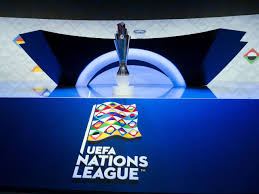Understanding the Importance of the Nations League

Introduction to the Nations League
The UEFA Nations League, established in 2018, has rapidly transformed the landscape of international football. This innovative tournament was developed to increase the competitiveness of international matches and reduce the number of friendlies played by national teams. Given the exciting matches and heightened stakes, the Nations League has become an essential fixture in the football calendar, captivating audiences worldwide.
How the Nations League Works
The format of the Nations League divides national teams into different leagues and groups based on their UEFA ranking. Teams compete across multiple matches, leading to promotion or relegation between leagues. The competition culminates in a final phase, where top teams vie for the title. The first edition in 2019 saw Portugal claim victory, setting a high standard for subsequent tournaments.
Current Developments and Future Prospects
As the 2023 edition unfolds, several national teams are eager to showcase their talents. The tournament not only boosts players’ visibility on an international stage but also serves as a qualification pathway for major tournaments such as the UEFA European Championship and the FIFA World Cup. With the growing investment in women’s football, the expansion to a Women’s Nations League is also being discussed, which could further popularize the sport and provide women athletes with much-needed opportunities.
Significance for Fans and Players
The Nations League enhances the fan experience by providing more meaningful matchups outside the World Cup and the European Championship. Fans now have the chance to see their teams compete in high-stakes matches against traditional rivals, which adds a layer of excitement. For players, the Nations League offers an opportunity to compete for national pride while gaining valuable experience that can help them in club football.
Conclusion
In conclusion, the Nations League has established itself as a critical component of the football ecosystem, fostering competition among national teams and enhancing the fan experience. As we look to the future, the continued evolution of the Nations League could reshape international football dynamics and provide fresh opportunities for emerging talents. For fans, this means more thrilling matches filled with drama and excitement, bridging the gap between club and country.








